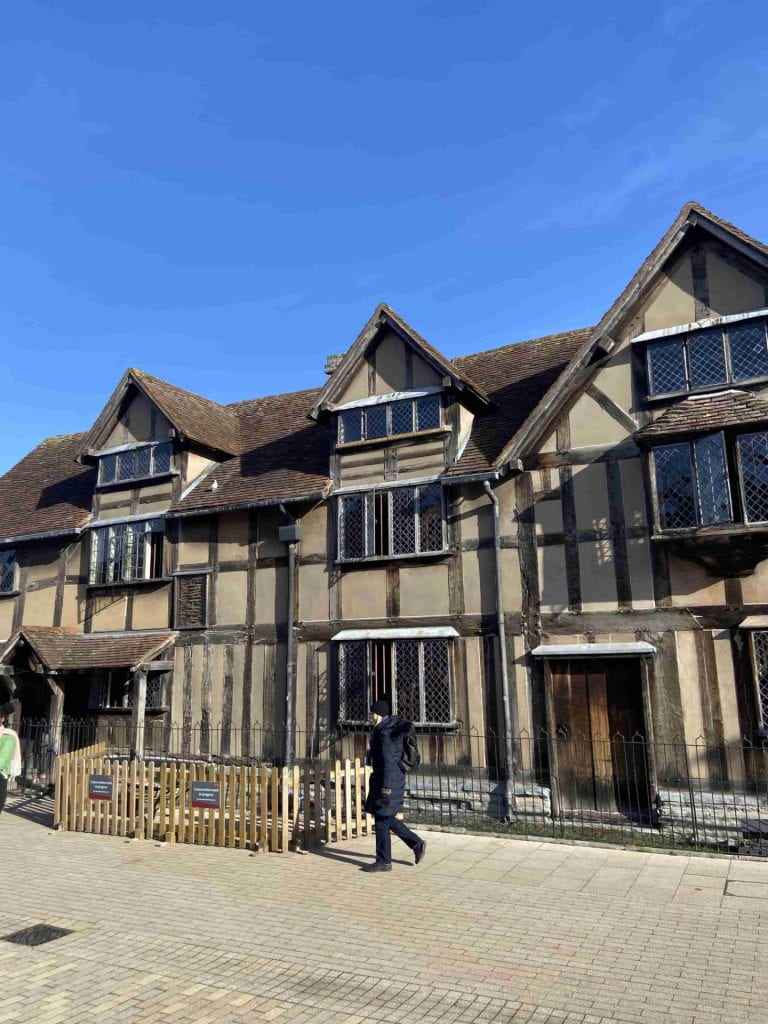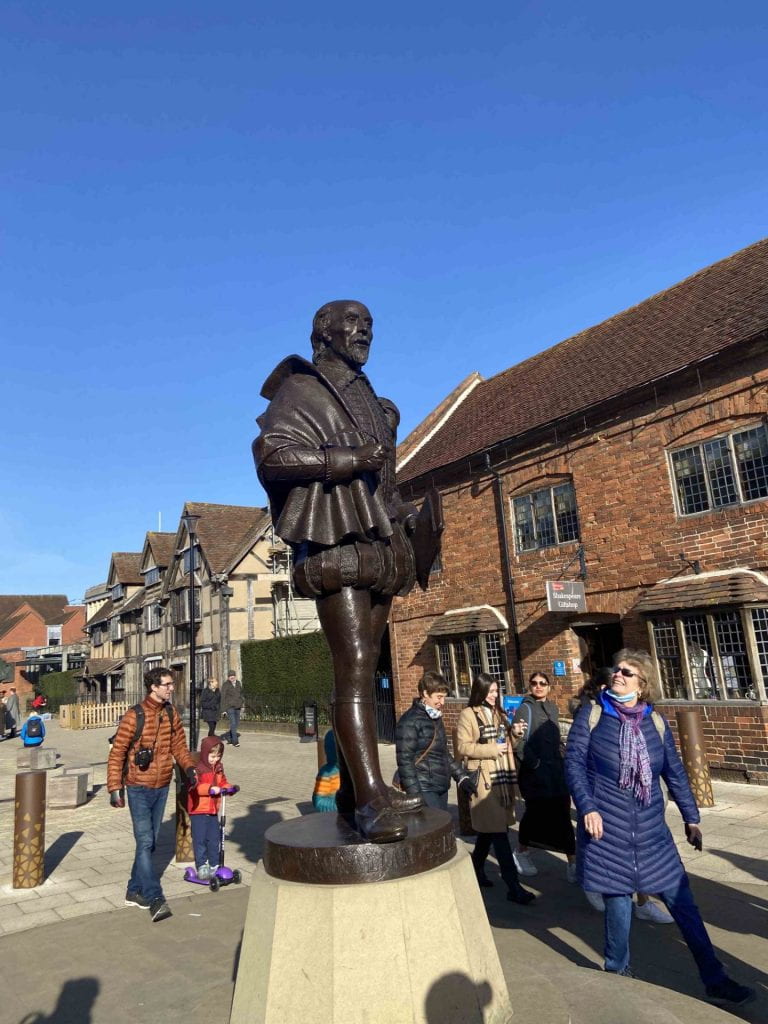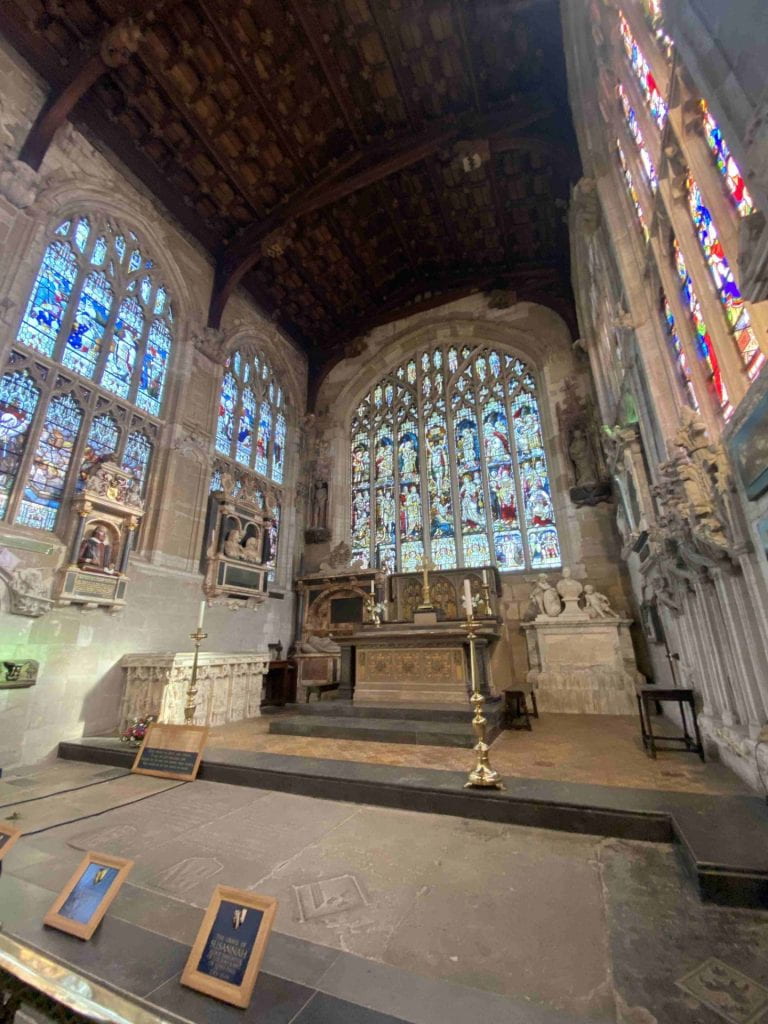Stratford Upon Avon: A Peaceful Retirement
Myles Byrne
When it was revealed to me that we would be driving two hours to visit Shakespeare’s hometown of Stratford Upon Avon, I was a little confused. At first, I felt that the only appeal for the visit was to see where he was buried which I found to be mildly exciting. However, the trip to Stratford Upon Avon was far more than a simple visit to Shakespeare’s resting place. Up until the point of this trip, my only experience of England was my personal exploration of the boroughs of London. My experience in London has been incredible, but I found myself having the shortsighted opinion that the city of London was all England had to offer. As we left London and began seeing the countryside, this preconceived notion was quickly fragmented. We passed vast fields populated with livestock which portrayed a rich and beautiful side to England that I was unaware of.
Our tour guide spoke over the loudspeaker and gave us a quick rundown of what to expect in Stratford along with some history about Shakespeare. He told us that Shakespeare was responsible for thousands of English words that we use in everyday conversation as well as his immense social impact. The tour guide also mentioned that Shakespeare would be able to recognize a lot of the buildings we would see. Learning more about Shakespeare and his hometown on the bus ride over, I began eagerly awaiting our arrival so that I may walk in this town that was rich with English history.
Stratford Upon Avon is a beautiful small town. It is apparent that Shakespeare was at the center of the town’s pride and for good reason. Shakespeare was born and raised in Stratford and came back to retire and eventually die in his hometown. We weren’t just walking through some quaint English town, we were walking through the very town that molded the greatest and most influential playwright in history. I felt honored to be able to have this experience and learn about Shakespeare’s upbringing. Shakespeare’s father was a glove maker and his mother was the daughter of a local farmer. Shakespeare had one of the richest families in Stratford, and because of this, he was able to be educated. We were lucky enough to walk past the school where Shakespeare learned to read and write. We toured through Shakespeare’s home which during his time was considered a mansion. We saw his final resting place in Holy Trinity Church. Shakespeare was so keen on remaining in his hometown that he was buried twenty feet deep so that no one would attempt to move his body. It is clear that Shakespeare had a very personal and emotional attachment to his hometown.



In his final play, The Tempest, it is believed by many that the character Prospero is a representation of Shakespeare himself. At the end of the play, Prospero returns to his home of Naples much as Shakespeare returns to his home of Stratford for retirement. Prospero found that his work was done and that it was time to depart from his life of storytelling. Shakespeare completed his quest of bringing the joys of theater to the public and wished to spend the rest of his days where he found comfort. Having made a great fortune from his time in London, Shakespeare was able to return to Stratford a famous and rich man. Living in the largest house in Stratford-upon-Avon spending time with some of his closest friends, it is apparent to me why Shakespeare returned. Spending your remaining days in a mansion in the town you grew up in that didn’t have the chaos of a major city like London is an incredible way to enjoy peace.





